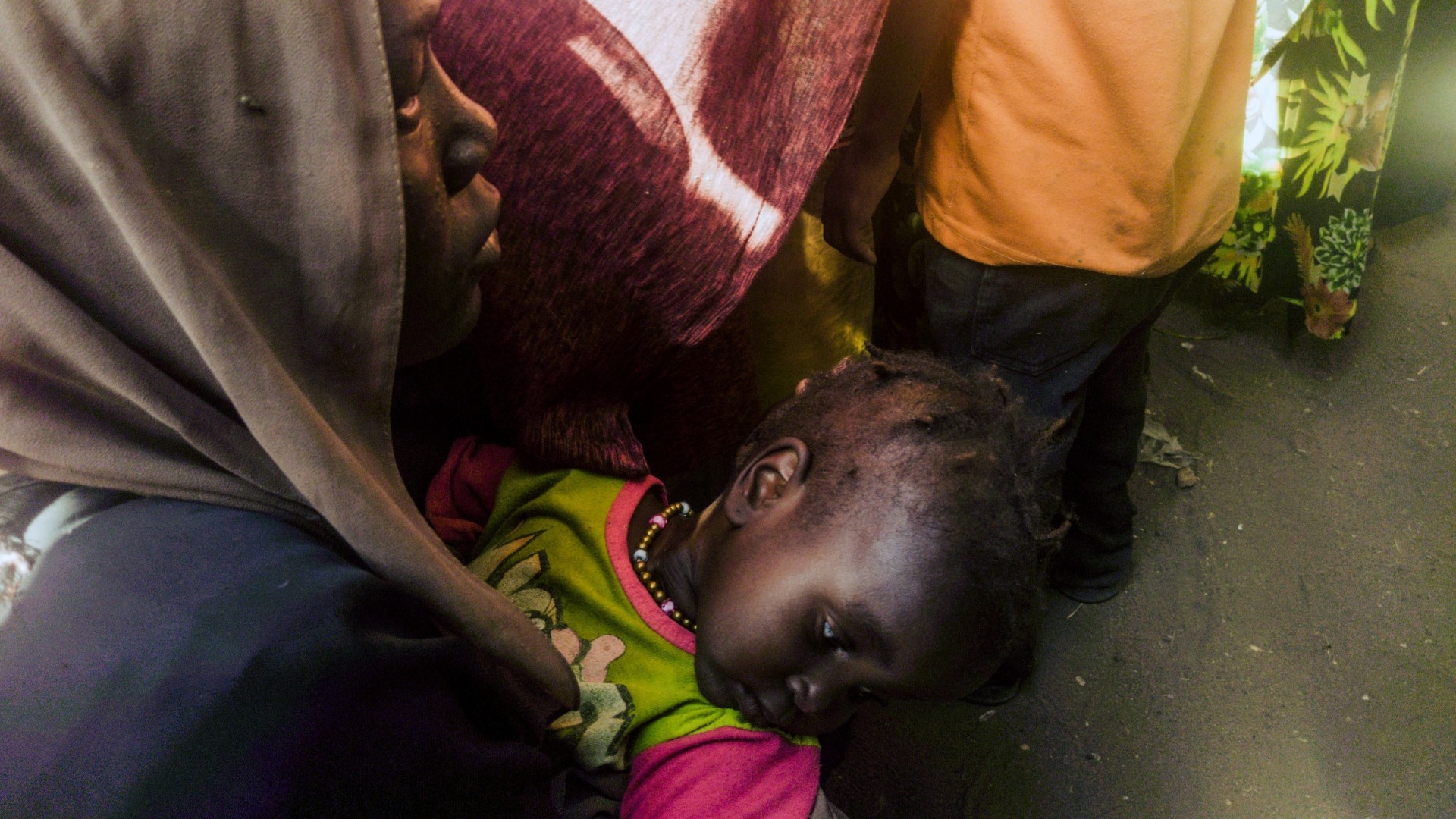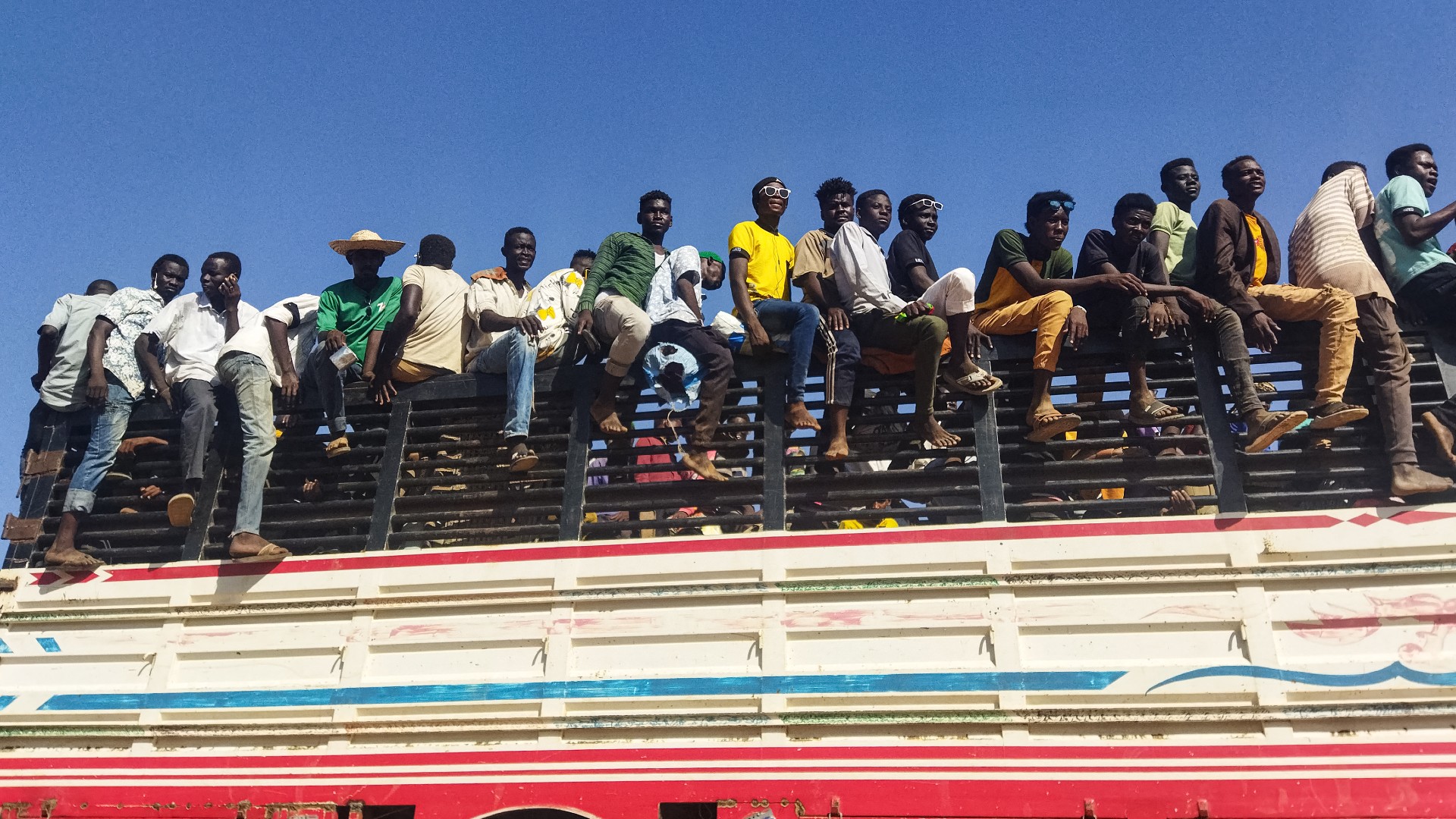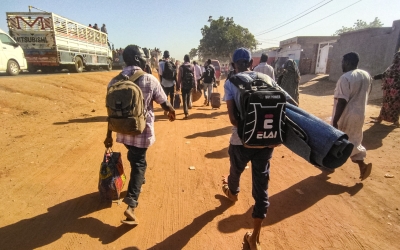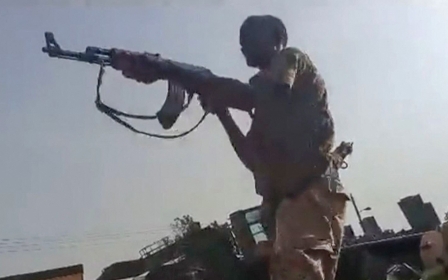Sudan: Soldiers accuse army of betrayal after retreat leaves Wad Madani to RSF

Sudanese soldiers have accused the army leadership of betrayal after being ordered to retreat from Wad Madani and allowing the paramilitary Rapid Support Forces (RSF) to seize Sudan’s second city and humanitarian hub.
An investigation has been opened into the army’s retreat from the state capital of el-Gezira, as clashes are reported across the state and its neighbouring states, Sennar and Gedaref.
The rapid fall of Wad Madani, which was first attacked on Friday, has spread fear and confusion across the country. The RSF is also staging attacks in North Darfur, Kordofan and White Nile state.
Meanwhile, Sennar and Gedaref are preparing for the worst and taking in thousands of newly displaced Sudanese.
The Sudanese Armed Forces (SAF) has imposed a state of emergency in nine of the states it still controls.
Stay informed with MEE's newsletters
Sign up to get the latest alerts, insights and analysis, starting with Turkey Unpacked
Troops in Wad Madani belonging to the army’s first division withdrew from the city on Monday without much evidence of resistance, despite claiming a day earlier they had fought off an RSF attack.
Following a public outcry, the Sudanese army said it will investigate the withdrawal.
“We have opened an investigation about the withdrawal of the first division of the SAF from Madani. The investigation will probe the reasons and the circumstances for the withdrawal from the military sites,” army spokesman Brigadier Nabil Abdullah said.
“The results of this investigation will be submitted to the concerned bodies and then circulated to the public.”
The city has operated as the chief base of operations for several humanitarian organisations over eight months of war between the army and RSF, especially as Khartoum, which lies 170km to the north, has been engulfed in war ever since it broke out on 15 April.
Wad Madani has also served as a safe haven for thousands of Sudanese forced to flee Khartoum.
Sudanese who volunteered to fight with the army following the outbreak of war with the RSF have accused the military leadership of betrayal.
“It seems that there is treason. Why did we withdraw at the moment that we were fighting aggressively?” one volunteer, who asked for anonymity for security reasons, asked Middle East Eye.
An officer in the Sudanese army told MEE that elements were still fighting in the city, adding that the order to retreat was “totally incorrect and a big tactical mistake”.
Fighting ongoing
The Rapid Support Forces claims to be in complete control of el-Gezira. Yet local residents and soldiers told MEE that there were pockets of fighting ongoing on Tuesday night.
Soldiers fighting in different parts of Wad Madani said they will not follow the army leadership’s orders to retreat.
“We will defend our people. We won't withdraw and we can't understand this order of withdrawal, but we don't care… we will continue fighting to the last person,” one told MEE.
Mohamed Hamdan Dagalo, the RSF leader better known as Hemeti, called on Wad Madani residents to remain in the city.
“To the people of Madani, I say that you are safe and we don’t like people to be displaced. We will also enable the people of Madani to rule themselves as we will engage in talks with the community leader in el-Gezira and work out how to do it,” he said.
In recent weeks, the RSF has seized control of most of Darfur, Sudan’s sprawling, strategic and restive western region.
In the cities of Nyala and Zalingei, the state capitals of South Darfur and Central Darfur respectively, the RSF has set up local administrations, stoking fears that Sudan will be divided between competing governments.
Sources in al-Hasahisa, a town 40km north of Wad Madani, said RSF fighters entered on Wednesday morning and declared local commander Abu Agla Kaikal as el-Gezira state’s new governor.
Resistance committees, networks of pro-democracy activists, in Wad Madani and al-Hasahisa said RSF fighters had ransacked shops and threatened civilians with sexual assault unless they cooperate.
The RSF has also accused the Sudanese military of targeting people in Wad Madani with ethnic roots in Darfur and Kordofan, who it said were suspected by the army of being spies.
Spread of panic
Sources in al-Gitaina in White Nile state reported clashes in the city, as did others in Gedaref’s al-Fao. Convoys of RSF vehicles were also seen heading towards Sennar from Wad Madani, sources said.
Amna Isam, a resident of al-Gitaina, said the sound of bombs and heavy gunfire can be heard in the city’s outskirts.
“We can clearly hear the sounds of the clashes in the outskirts of the city. The people are currently fleeing to the south of the state, heading towards the cities of el-Dueim and Kosti,” she told MEE.
Abdallah Ahmed, a farmer in al-Fao, a town 60km from Wad Madani, said that people who fled nearby villages said the RSF and SAF are clashing between the town and Wad Madani.
"The RSF is clearly targeting Gedaref city and they want to cross through to al-Fao,” he said.
Sudanese who have fled villages around al-Fao told MEE that the RSF was approaching it with heavily equipped vehicles.
Sources in Gedaref state said the authorities have put their forces on standby, expecting imminent attacks.
'We can clearly hear the sounds of the clashes in the outskirts of the city'
- Amna Isam, al-Gitaina resident
In Northern and River Nile states, north of Khartoum, tensions are also building. Markets were closed in Atbara and al-Damar cities, traders there told MEE.
The RSF takeover of Wad Madani has caused around 300,000 people to flee to nearby Sennar state, according to the UN.
“Field teams indicated that the clashes continue to cause widespread displacement across Wad Madani,” the UN Office for Humanitarian Affairs (Ocha) said on Tuesday.
“Given the scarcity of available transport options, many people have reportedly fled by foot,” it added.
“According to updates from field teams, displaced households are currently sheltering in open areas, improvised shelters, schools, and within the host community.”
The displacement crisis in Sudan has reached new extremes, the UN has warned, with some 7 million out of a pre-war population of 45 million forced from their homes, including more than a million who have fled to neighbouring countries.
Middle East Eye delivers independent and unrivalled coverage and analysis of the Middle East, North Africa and beyond. To learn more about republishing this content and the associated fees, please fill out this form. More about MEE can be found here.






